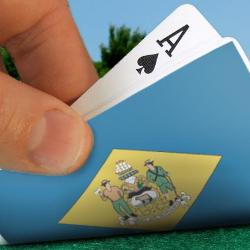Is Playing Poker Worthwhile Training For The Business World?

If you’re looking for popular games to play, particularly online, or with your buddies for that matter, you’ll be hard-pressed to come up with a more popular card game than poker. Over the last decade, poker’s popularity has literally skyrocketed, with more people playing the game than ever before. All you need to do to get an idea of how popular it is would be to check out various online gaming and gambling sites, visit any casino, or even watch TV late at night/early in the morning and you’ll see numerous televised poker matches and leagues being broadcast.
While fun to play and watch, not everyone is able to become a poker pro and earn a living from the game, although many do agree that the basic principles behind poker can be applied to everyday life for the better. In fact, one particular question that poker players and pros get asked all the time is whether or not it’s actually worth learning to play poker? Some say yes, whilst some say no. One person in the latter category is Jeff Meyerson, who graduated from the University of Texas Computer Science in 2013, and was a professional poker player and coach, before settling on his present career as a software engineer.
Is It Worth It?
According to Meyerson, no it is not worth it. Whilst some pros have argued the case that certain elements can be applied to everyday life, particularly in the business world, Meyerson is adamant that that is simply not the case at all, and is nothing more than pros trying to drum up more interest in their sport. Jeff actually went on record as saying that poker was a “negative sum game” and that the lessons it provided were not directly relatable to the current business environment. As he explains, “the best businesses today offer win-win scenarios, and the market punishes highly competitive thinking.”
Furthermore, he touches upon the fact that nowadays, the number of popular poker games compared to back in poker’s heyday have diminished rapidly, which in turn makes it much harder to find games in which you will win. This is also in direct contrast to the today’s business world of abundance where “compute power is cheap. It’s easy to raise money. Individuals have leverage which grows at pace with Moore’s Law.”
Are Poker Skills Transferable To The Business World?
Of course this is a relative question as some will believe that yes they are, whilst others will believe that, no they are not. In Jeff Meyerson’s case, however, whilst you may expect him to have a largely negative answer to this question, in actual fact, he has stated that within certain types of industries, some poker skills could carry over into useful skills for certain industries. Probability frameworks, and risk assessments for example, were cited as being especially useful. Despite this however, on the whole he did state that they were limited and that basically dedicating a lot of time to poker is incredibly wasteful. Ouch. Overall, Meyerson believes that from a business standpoint, there are better ways of using your time in order to get ahead, and we’re probably inclined to agree with him on that front.
“If you want a game to learn from, consider Dominion, Magic, or Pandemic. If you want to learn about risk and consequence, you can read about World War II. If you want to learn about Markov models, you can intern on Wall Street. There’s no reason to play poker,” explained Meyerson
How About Becoming A Poker Pro?
Another pro that has gone on record warning against learning how to become a pro is Vanessa Selbst. She recently spoke with a class of high school seniors, again warning them against thinking of becoming a pro. Again, like Meyerson, her main argument for this was the fact that as there are now fewer games available, and it is now much harder to win, making it much more of a high-risk career choice. She did say, however, that due to a vested interest in probabilities and math, playing poker did actually benefit her career. Despite this, the general consensus seems to be that as the game has changed it has become much tougher to win. Therefore, embarking on a career as a poker pro is now much more of a risk than in the past, and that is a gamble fewer people nowadays will be willing to take.










